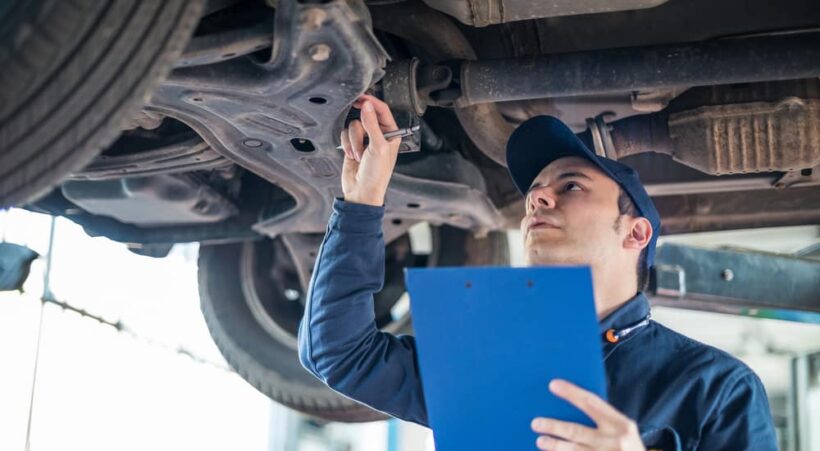A lot goes into finding the perfect car for your business. If your business is growing, you may need to anticipate business needs in the future. Learning from common business car buying mistakes can keep you from too many pitfalls during the process.
1. Not Implementing an Effective Fleet Management System
No matter how many vehicles your business currently owns, implementing the right fleet management practices can help you save time and money. One aspect you may want to implement is engine hour data collection. This allows organizations to monitor wear and tear on all vehicles, even if the vehicle is not in motion. Engine hour information lets you bill accurately, set up preventative maintenance, and check idling time. If you want to know more about engine hour tracking, you can check here online to learn how to implement it in your business.
2. Not Thinking About Your Needs

Buying a car for your business is a major purchase, so it’s important to get one that will meet your needs. That’s partly because the vehicle will represent your organization, so it should make a good impression. But with so many options out there, you may not understand which one is the best for your company. Instead of starting with what is available, start with what you need the car to do for you. If you will be hauling equipment, you may need a larger vehicle. But if you want something efficient around the city, you may want a smaller version.
Choosing the right aesthetics may help your business make a statement, but it is not as important as the size. Consider the trips your car will need to make and think about the amount of space you will need to accomplish that. A van may give you the room you need to get your tasks done. On the other hand, if you will be shuttling high-end clients around, you may want something a bit sportier, and you would not need as much space.
After determining what you need out of your new car, you can match what you need with the available cars. This helps you narrow down the options. Just know that business needs may change over time, so make sure you pick something that will adapt to your business’s needs.
3. Not Spending Enough Time Researching the Options
Make sure you spend sufficient time learning about the options before narrowing them down. Take some time to read over reviews, especially those from other small business owners. Learn about these small business owners’ pain points and what they felt the vehicle did especially well. Taking the right amount of time means you will not end up with something that feels good on the outside but does not meet your needs. Go beyond the details of the make and model and consider things like fuel efficiency as well. One of the initial ways to save money on fuel is to purchase vehicles with favorable gas mileage.
Consider the type of business you are and the type you may be in five years. Are you a large organization with plenty of employees and lots of other vehicles in your fleet? Or are you a small operation with just a couple of employees? Larger companies will have different needs than smaller businesses. This may also play a role in your budget. Small businesses may not have that much cash to spare for a down payment.
Think about how well you can afford the different options you are looking at. If you need to get financing for it, ensure this is factored into the budget. Asking yourself the right questions allows you to narrow the options down, making it easier to get the right vehicle for your organization.
4. Not Test Driving Enough Vehicles

It’s important to test drive a vehicle you are considering purchasing. Otherwise, you will not know if you will enjoy driving it or not. A test drive can also help you understand how well the car handles, and whether or not it will fit your requirements. Just know this is only a part of the process of deciding if it’s right for you. You will need to think about safety features, fuel economy, and cargo space as well. Just because you love the test drive does not mean it will be a practical vehicle.
5. Not Getting Inspected First

Getting the vehicle inspected before purchase is especially important if you are getting a used one. A qualified mechanic should do the inspection. This ensures it does not have any issues that could be another expense to fix later on. It also ensures the vehicle is in good condition overall. You may want to cut costs wherever possible, but this is one area where cutting costs could be more expensive down the road.
You may spend a couple of hundred dollars on this intersection, but it can give you peace of mind that you are getting what you are paying for. Before the inspection, talk to the mechanic about what you will use the car for. This allows them to tailor it to your needs. If you will be hauling things long-distance, they can pay particular attention to the engine. If they do find any concerns, you can use this as leverage when it comes to negotiating the price with the dealer.
6. Not Following the Correct Finalization Process

After finding the right car, you’ll want to make sure you finalize the purchase correctly. A common mistake is to accept the price as-is without negotiating it any. Whether you are buying it from a full-service dealership or a private seller, make sure you at least ask about negotiating. The worst they can do is to say no.
If you are getting financing for the car, make sure you shop around to find the best interest rates. This will depend partly on your business’s credit history. Don’t sign anything without doing your research on financing. If you have an old vehicle to trade in, ensure you are getting fair market value for it as well. These steps may seem small, but they can save you money on the final purchase price of your new car.

